July 15
Iris Murdoch
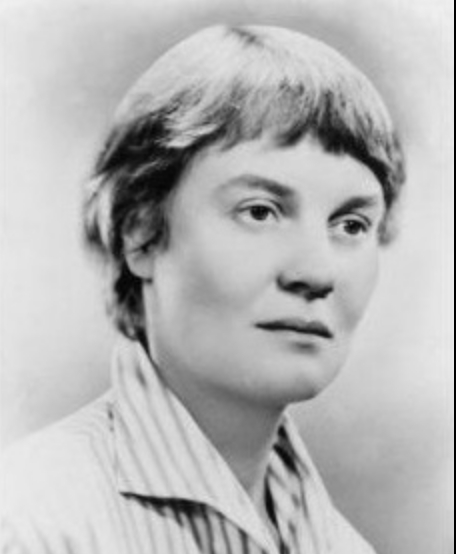
“I daresay anything can be made holy by being sincerely worshipped.”
On this date in 1919, Iris Murdoch, the daughter of an Irish woman who trained as a singer and an English civil servant, was born in Dublin. Iris as a child moved with her family to the suburbs of London. The prolific writer of 26 novels was educated at Somerville College, Oxford, and became a fellow of St. Anne’s College, Oxford, in 1949.
Her first book was nonfiction: Sartre, Romantic Rationalist (1953). Her first novel was Under the Net (1954). A Severed Head (1961) was made into a film in 1971. The Bell (1958) was about the Anglican religious community. Her book The Time of Angels (1956) depicted a highly flawed Anglican priest. The Sea, The Sea (1978) won the Booker Prize.
For a self-described atheist, Murdoch had a somewhat confusing view of religion. The New Economist reported on Sept. 25, 1995, that one of her concerns “has been religion and its role in the modern world. She herself does not believe in God and, in the specific case of Christianity of the more orthodox sort, has a problem with the picture of God as a person up in Heaven, and Christ as his son, a magical, spiritual being.” (Cited in Who’s Who in Hell, ed. Warren Allen Smith.)
Murdoch was made a Dame of the Order of the British Empire in 1987. Her death from Alzheimer’s disease was documented in Elegy of Iris, and A Memoir of Iris Murdoch by her husband John Bayley. The movie “Iris,” starring Kate Winslet and Judi Dench as the author, was made in 2001. D. 1999.
“I daresay anything can be made holy by being sincerely worshipped.”
—Murdoch, "The Message to the Planet" (1989)
Jesse Ventura
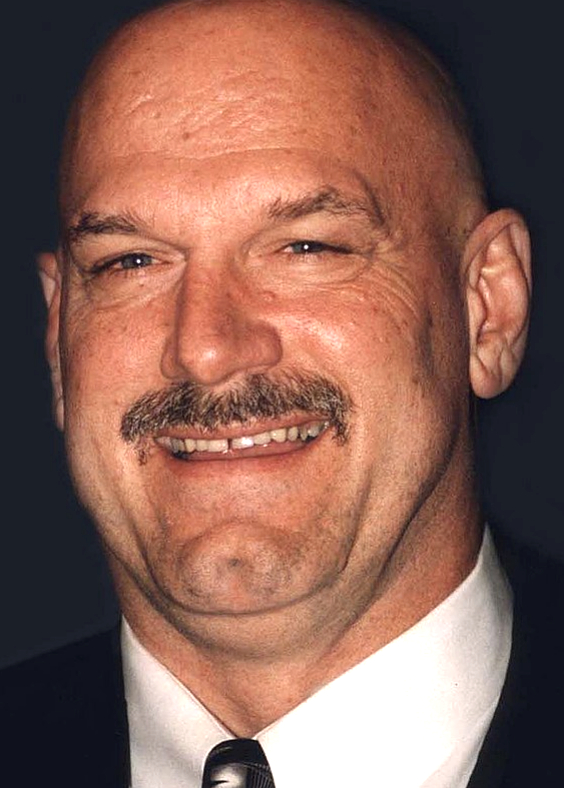
“Organized religion is a sham and a crutch for weak-minded people who need strength in numbers.”
On this date in 1951, James George Janos, later known as Jesse “The Body” Ventura, was born in Minneapolis to George and Bernice Janos. After graduating from high school, he joined the U.S. Navy and served during the Vietnam War. He attended North Hennepin Community College in Minneapolis but dropped out after one year and spent the next several years in various places and jobs. He was briefly a bodyguard for the Rolling Stones. Janos developed a rigorous workout routine and started wrestling professionally in the mid-1970s, changing his name to the one that made him famous.
Playing a loud, aggressive villain became Ventura’s trademark as a wrestler for the World Wrestling Federation. He continued wrestling until 1984, when emergency hospitalization due to blood clots in his lungs made him miss a title match against Hulk Hogan and ended his career. He spent the next five years as a wrestling commentator and acted in a handful of films, including several Arnold Schwarzenegger movies: “Predator” (1987), “The Running Man” (1987) and “Batman & Robin” (1997).
In 1990 Ventura ran against and defeated the 18-year incumbent mayor of Brooklyn Park, Minn., serving until 1995. He campaigned for governor as a third-party candidate and was one of the pioneering politicians who reached out to new voters via the internet. He was elected as governor in 1998 and proved to be a progressive politician, strongly backing gay rights, abortion rights, funding for higher education, mass transit, property tax reform and opening trade relations with Cuba. Deciding not to run for reelection because he wanted his family to regain their privacy, Ventura and his family (including wife Terry, whom he married in 1975) moved to Mexico.
He was the recipient in 1999 of FFRF’s Emperor Has No Clothes Award for his “plain speaking” on religion and, as governor, for rejecting proposals to entangle state and church, including refusing to proclaim a state “Day of Prayer.”
He said at the time, “I believe in the separation of church and state. We all have our own religious beliefs. There are people out there who are atheists, who don’t believe at all. They are all citizens of Minnesota and I have to respect that.” (Minnesota Independent, April 20, 2010.) He also vetoed a bill that would have required students to recite the Pledge of Allegiance in public schools.
Ventura in 1996; Kingkongphoto & www.celebrity-photos.com (cropped) under CC 2.0.
“Organized religion is a sham and a crutch for weak-minded people who need strength in numbers.”
—Ventura, Playboy magazine, November 1999
Adam Savage
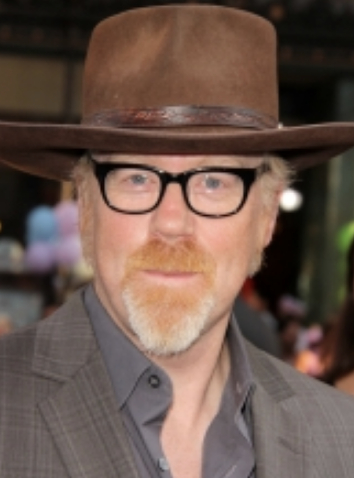
“The idea of an ordered and elegant universe is a lovely one. One worth clinging to. But you don’t need religion to appreciate the ordered existence. It’s not just an idea. It’s reality. We’re discovering the hidden orders of the universe every day. The inverse square law of gravitation is amazing. Fractals, the theory of relativity, the genome: these are magnificently beautiful constructs.”
On this date in 1967, Adam Savage was born in New York City. Savage was raised in North Tarrytown, N.Y., now known as Sleepy Hollow. “I’m actually the fourth generation in my family to have no practical use for the church, or God, or religion. My children continue this trend.” (Savage in a speech to Harvard humanists, April 2010.)
He worked as an actor when he was a child, but started working in special effects when he was 19. Savage constructed mechanical effects for theatrical productions and worked as a model maker on several films, including the new “Star Wars” movies and “Space Cowboys,” before being offered the opportunity from the Discovery Channel to create and host the show “Mythbusters” with Jamie Hyneman, another special effects veteran.
On “Mythbusters,” Savage and Hyneman, along with their staff, investigate myths and rumors through experimentation. Though “Mythbusters” does not investigate claims about the supernatural, as they are often non-disprovable, Savage and his co-host are openly nonreligious, and both were awarded the Harvard Humanist Chaplaincy’s Lifetime Achievement Award in Cultural Humanism.
“The idea of an ordered and elegant universe is a lovely one. One worth clinging to. But you don’t need religion to appreciate the ordered existence. It’s not just an idea. It’s reality. We’re discovering the hidden orders of the universe every day. The inverse square law of gravitation is amazing. Fractals, the theory of relativity, the genome: these are magnificently beautiful constructs.”
—Savage in his acceptance speech as Harvard humanist chaplain (April 2010)
David Miliband
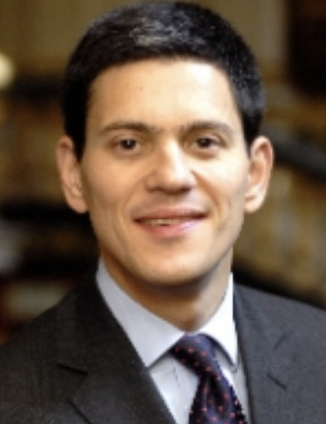
“My parents and grandparents — all of them Jews — went through huge trauma. They went through the trauma of the Holocaust. I don’t know if it’s for that reason that, by 1965, when I was born, my grandparents, who were alive, my parents were secular. But I’ve grown up in a secular way. I’ve thought about this, and I’m an atheist.”
On this date in 1965, David Wright Miliband was born in London. Ralph Miliband, his father, was a great Marxist scholar from Belgium and his mother was a feminist and human rights activist from Poland. Miliband’s parents were Jewish and settled in England after escaping the Holocaust. Miliband graduated with first-class honors from Corpus Christi College at Oxford University with a degree in philosophy, politics and economics.
As a Kennedy Scholar at the Massachusetts Institute of Technology, he earned a master’s degree in political science in 1989. Miliband then worked at a British think tank, the Institute for Public Policy Research, as a research fellow and policy analyst until 1994.
Miliband was appointed as Tony Blair’s Head of Policy in 1994, and three years later Blair appointed him the de facto Head of the Prime Minister’s Policy Unit, a post he held until the 2001 election. Miliband was elected to Parliament for South Shields in 2001. Miliband served as Schools Minister in 2002, Cabinet Office Minister in 2004, Minister of State for Communities and Local Government in 2005, Secretary of State for Environment, Food and Rural Affairs in 2006.
New Prime Minister Gordon Brown appointed Miliband Foreign Secretary in 2007. David Miliband gained the most nominations for his bid in 2010 for Labour Party Leader, a race that included his younger brother Ed Miliband, to whom he ultimately lost by a narrow margin. Since his unsuccessful campaign, Miliband has continued serving as a Member of Parliament for South Shields and became a senior global advisor for Oxford Analytica.
Miliband is married to American-born violinist Louise Shackelton, with whom he has adopted two sons.
“My parents and grandparents — all of them Jews — went through huge trauma. They went through the trauma of the Holocaust. I don’t know if it’s for that reason that, by 1965, when I was born, my grandparents, who were alive, my parents were secular. But I’ve grown up in a secular way. I’ve thought about this, and I’m an atheist.”
—Miliband interview with CNN’s Fareed Zakaria (July 5, 2009)
Linda Ronstadt
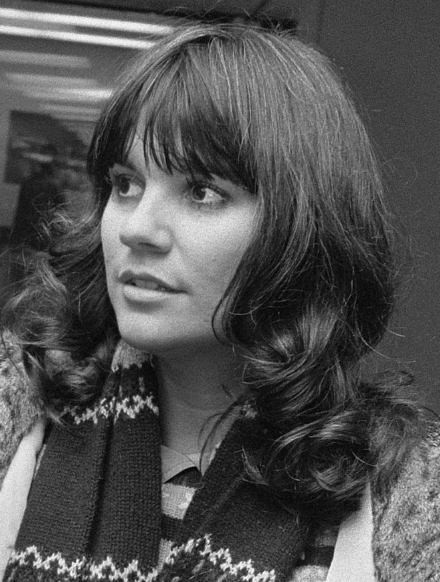
“Linda went to Catholic school, but it didn’t take. ‘I was an atheist by third grade,’ she told me, though there is a Haitian goddess she prays to, for President Obama.”
On this date in 1946, singer Linda Maria Ronstadt was born in Tucson, Ariz., to Gilbert and Ruth Mary (Copeman) Ronstadt. The Ronstadts were a prosperous family with long ties to the area. Linda’s parents were both musically inclined and, at age 14, she formed a folk trio with her brother Peter and sister Suzy. After a stint at the University of Arizona, she moved to Los Angeles and joined the Stone Poneys (biggest hit, “Different Drum”). Her first solo album came in 1969 and from there her career took off, with Cashbox naming her the top-selling female singer of the 1970s.
Her vocals ranged from contralto to soprano, and over the years her mastery of different musical genres was equally impressive. She has recorded 30 albums, received 11 Grammys and was inducted into the Rock and Roll Hall of Fame in 2014. She was nominated for Tony and Golden Globe awards for her performance in “Pirates of Penzance.” Diagnosed in 2011 with Parkinson’s disease, she was forced to retire. “I can’t sing at all,” she told The New York Times in August 2013. “I’m truly not able. I can’t sing ‘Happy Birthday,’ really.”
Ronstadt has never married, although her relationship with California Gov. Jerry Brown in the late 1970s landed them on the cover of People magazine. She later dated comedian Jim Carrey and was engaged to “Star Wars” director George Lucas. “I’m very bad at compromise, and there’s a lot of compromise in marriage,” she told the Times.
She adopted an infant girl, Mary Clementine, in 1990, when she was 44, and her son Carlos in 1994. Ronstadt’s public support of liberal causes, including immigrants’ rights, has led to praise and criticism. An early champion of gay rights and marriage equality, she told PlanetOut in August 2009 that “homophobia is anti-family values. Period, end of story.”
She titled her 2013 autobiography Simple Dreams: A Musical Memoir after her 1977 album “Simple Dreams.” In the book she wrote: “I am not religious, but a rehearsal room can seem like a hallowed space; a place for transformation. A performer enters it at his peril.” Asked about her religious beliefs on “The Tavis Smiley Show” (Sept. 26, 2013), she replied, “I’m a spiritual atheist.”
Her book with Lawrence Downes titled “Feels Like Home: A Song for the Sonoran Borderlands” was published in 2022. Asked if she was no longer a practicing Catholic, she replied with a smile: “I’m a practicing atheist. But I like this pope and I think he would do more if he could.” (San Diego Union-Tribune, Sept. 22, 2022)
PHOTO: Ronstadt in 1976; Dutch National Archives.
“Linda went to Catholic school, but it didn’t take. ‘I was an atheist by third grade,’ she told me, though there is a Haitian goddess she prays to, for President Obama.”
—Lawrence Downes, New York Times interviewer, Dec. 27, 2013
Jacques Derrida
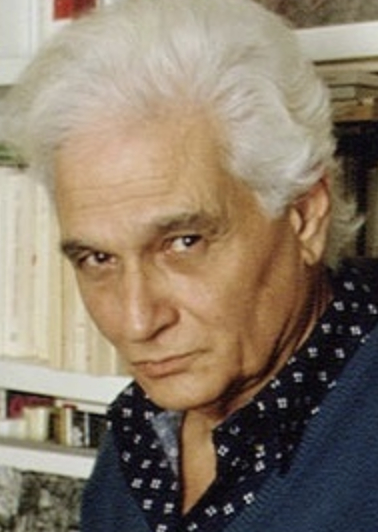
“If I believe in what is beyond being, then I believe as an atheist, in a certain way. However paradoxical it may sound, believing implies some atheism; and I am sure that true believers know this better than others, that they experience atheism all the time. It is part of their belief.”
On this date in 1930, philosopher Jacques Derrida was born in El Bair, French Algeria, to a Sephardic Jewish family. Subjected to the Vichy regime’s oppressive “Jewish laws,” Derrida’s high school studies were interrupted by World War II. In 1949 he moved to Paris to study philosophy at the prestigious École Normale Supérieure.
A prominent figure in the field of post-structural philosophy, Derrida was a pioneer of a method of semiotic analysis called “deconstruction,” perhaps best summarized as “a theory of reading which aims to undermine the logic of opposition within texts.” (A Dictionary of Critical Theory, 1996.)
.Derrida’s works responded to and deconstructed the Western metaphysical tradition, working in constant dialogue with major philosophical movements of the 20th century, including “Husserlian phenomenology, Saussurean and French Structuralism, and Freudian and Lacanian psychoanalysis” (Encyclopedia of Contemporary Literary Theory, 1993.) A prolific writer, Derrida’s major works include Speech and Phenomena (1967), Of Grammatology (1967), Writing and Difference (1967), Margins of Philosophy (1972) and Acts of Literature (1991).
Religion and its constitutive philology was often subject to Derrida’s deconstructive turn. While Derrida writes, in “Circonfession” (1991), that he would “rightly pass” (je passe à juste titre) for an atheist, the guiding methodology for his work sought ultimately to challenge distinctions between labels like theist and atheist, believer and nonbeliever, and, more broadly, between loaded terms such as faith and reason.
For Derrida, the only “true believer” is one who “[knows] they run the risk of being radical atheists.” (Derrida and Religion: Other Testaments, 2004.) It was this paradoxical view of religion, one which aimed to transcend the bounds of rigid, dogmatic faith as well as logic, that defined Derrida’s practice. D. 2004.
“If I believe in what is beyond being, then I believe as an atheist, in a certain way. However paradoxical it may sound, believing implies some atheism; and I am sure that true believers know this better than others, that they experience atheism all the time. It is part of their belief.”
—"Derrida and Religion: Other Testaments" (2004)
